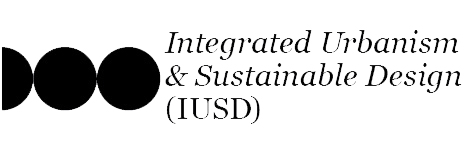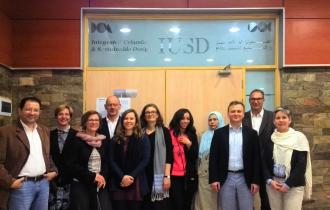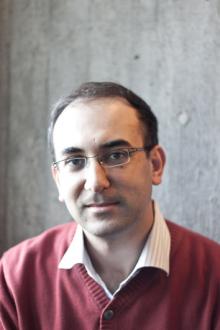
Assoc. Prof. Dr. Yehya Serag
 Yehya Serag received a Bachelor degree in Architecture with a major in Urban Planning and Design from Ain Shams University, Cairo. He, then, obtained his MA in human settlements (PGCHS – Catholic University of Leuven) as well as a Post Graduate Certificate in spatial and regional planning after completing the European Module for spatial development and planning (New Castle University). He graduated with a PhD on the topic “Networking and networks as tools for regional development and planning: Human settlements’ development potentialities in the Western part of Egypt” from the department of Architecture, spatial planning and landscape (Catholic University of Leuven). Since April 2014, Serag holds the position of an associate professor of urban and regional planning at the Department of Urban Planning and Design at Ain Shams University. Starting from December 2010, he coordinates the MSc IUSD. He is currently interested in the impact of politics on urbanism as a new line of research, as well as , urban and regional strategic planning and development.
Yehya Serag received a Bachelor degree in Architecture with a major in Urban Planning and Design from Ain Shams University, Cairo. He, then, obtained his MA in human settlements (PGCHS – Catholic University of Leuven) as well as a Post Graduate Certificate in spatial and regional planning after completing the European Module for spatial development and planning (New Castle University). He graduated with a PhD on the topic “Networking and networks as tools for regional development and planning: Human settlements’ development potentialities in the Western part of Egypt” from the department of Architecture, spatial planning and landscape (Catholic University of Leuven). Since April 2014, Serag holds the position of an associate professor of urban and regional planning at the Department of Urban Planning and Design at Ain Shams University. Starting from December 2010, he coordinates the MSc IUSD. He is currently interested in the impact of politics on urbanism as a new line of research, as well as , urban and regional strategic planning and development.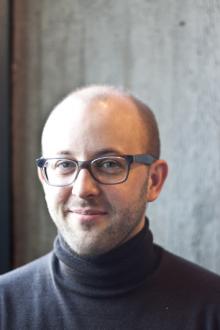
Dipl.-Ing. Moritz Bellers
 After completing a Diploma in landscape and open space planning at Leibniz University Hannover in 2008 and landscape architecture (between 2004 and 2005) at Universiteit Wageningen, NL he worked for jbbug – landscape architects in Cologne from 2009 to 2011. Since July 2010 he teaches and researches at the Department of Landscape Planning and Ecology, Faculty of Architecture and Urban Planning at University Stuttgart. His research interests focuses on performative landscape techniques, process driven designs and ecological engineering. Moritz is teaching in the "Urban Ecology and Ecosystem Design" Core Module and the "Integrated Research and Design Project" Module within the IUSD at University of Stuttgart.
After completing a Diploma in landscape and open space planning at Leibniz University Hannover in 2008 and landscape architecture (between 2004 and 2005) at Universiteit Wageningen, NL he worked for jbbug – landscape architects in Cologne from 2009 to 2011. Since July 2010 he teaches and researches at the Department of Landscape Planning and Ecology, Faculty of Architecture and Urban Planning at University Stuttgart. His research interests focuses on performative landscape techniques, process driven designs and ecological engineering. Moritz is teaching in the "Urban Ecology and Ecosystem Design" Core Module and the "Integrated Research and Design Project" Module within the IUSD at University of Stuttgart.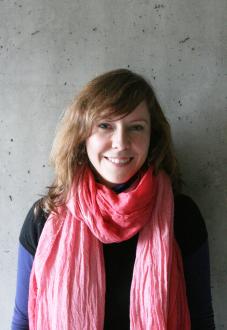
Dipl.-Ing. MSc. Franziska Laue
 Franziska Laue holds a Diploma in Architecture from TU Berlin and a M.Sc. in Integrated Urbanism and Sustainable Design (IUSD) Stuttgart/Cairo. Since 2003 she was engaged as a freelance advisor in projects in Germany, Syria and Burkina Faso and Egypt. From 2007 until 2011 she worked for the GIZ Urban Development Programme (UDP) in Aleppo. Since 2008 she was involved in local and international conferences, exhibitions and publications on local identity, informal urban development in the MENA region. Recently, Franziska was member of exhibition and publication teams for “Aleppo Archive” (DOC Aleppo) on urban heritage conservation and archiving as well as “Space Time Dignity Rights” (DAZ Berlin) on refugee camp improvement strategies. She has published on a long-term research on informal urban growth in Damascus, Syria. A present academic focus is climate change adaptation in the MENA region. Since October 2013 she is research assistant at the International Urbanism Institute and is part of the IUSD Course Coordination Team at University of Stuttgart.
Franziska Laue holds a Diploma in Architecture from TU Berlin and a M.Sc. in Integrated Urbanism and Sustainable Design (IUSD) Stuttgart/Cairo. Since 2003 she was engaged as a freelance advisor in projects in Germany, Syria and Burkina Faso and Egypt. From 2007 until 2011 she worked for the GIZ Urban Development Programme (UDP) in Aleppo. Since 2008 she was involved in local and international conferences, exhibitions and publications on local identity, informal urban development in the MENA region. Recently, Franziska was member of exhibition and publication teams for “Aleppo Archive” (DOC Aleppo) on urban heritage conservation and archiving as well as “Space Time Dignity Rights” (DAZ Berlin) on refugee camp improvement strategies. She has published on a long-term research on informal urban growth in Damascus, Syria. A present academic focus is climate change adaptation in the MENA region. Since October 2013 she is research assistant at the International Urbanism Institute and is part of the IUSD Course Coordination Team at University of Stuttgart.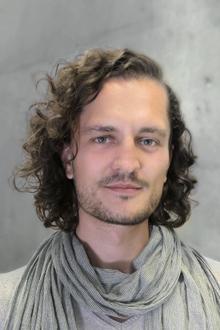
Dipl.-Ing. Raoul Cyril Humpert
 Raoul Cyril Humpert studied at the École Nationale Supérieure d´Architecture de Montpellier and the University of Stuttgart, where he received his diploma of Architecture and Urbanism in 2012. During his education, he developed a strong interest in the multidisciplinarity of architecture and gained extensive practical and international experiences while working for landscape architects Pfrommer + Roeder, architecture photographer Roland Halbe and Shanghai-based French interior design office LIME388. He also participated in different workshops for mudbrick constructions in Lyon, for walkable cities in Hefei and public schoolyards in Cairo. Additionally Raoul worked as a student assistant at the Institute for Art and Design and the Institute for International Urbanism at the University of Stuttgart. He hold a teaching position at the University of Innsbruck and since November 2012 Raoul is research assistant at the International Urbanism Institute and is part of the IUSD Course Coordination Team at University of Stuttgart.
Raoul Cyril Humpert studied at the École Nationale Supérieure d´Architecture de Montpellier and the University of Stuttgart, where he received his diploma of Architecture and Urbanism in 2012. During his education, he developed a strong interest in the multidisciplinarity of architecture and gained extensive practical and international experiences while working for landscape architects Pfrommer + Roeder, architecture photographer Roland Halbe and Shanghai-based French interior design office LIME388. He also participated in different workshops for mudbrick constructions in Lyon, for walkable cities in Hefei and public schoolyards in Cairo. Additionally Raoul worked as a student assistant at the Institute for Art and Design and the Institute for International Urbanism at the University of Stuttgart. He hold a teaching position at the University of Innsbruck and since November 2012 Raoul is research assistant at the International Urbanism Institute and is part of the IUSD Course Coordination Team at University of Stuttgart.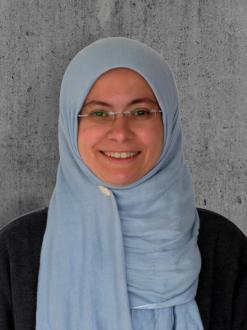
Dr. Marwa Abdellatif

Marwa Abdellatif obtained a B.Sc. in Urban Planning and Design (Ain Shams University, Cairo, 2000) and a M.Sc. in ecotourism in the Western Desert of Egypt (ASU, 2006), and received her PhD on the topic of ‘Paradigms for Spatial Planning – Transformations in the Planning System of Egypt’ (ASU, 2013).
She currently holds the position of an assistant professor at the Department of Urban Planning and Design, Ain Shams University.
She is particularly interested in exploring new pedagogical approaches for education of spatial planning. She participated in a number of workshops in Egypt and Germany on higher education. In 2011, she co-founded ‘Letaarfo’ initiative to deepen the understanding of the interwoven relationships of people and places. She is a programme coordinator of the MSc. IUSD at Ain Shams University, Cairo.
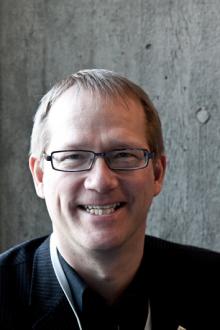
Dr.-Ing. Bernd Eisenberg
 Bernd Eisenberg completed a diploma in Landscape and Open Space Planning at TU Hannover and worked in the field of GIS-based planning in Hamburg and Stuttgart. He obtained his PhD on the topic of “Park metrics - quantification methods for spatial potentials of green open spaces with regard to recreational uses” at the University of Stuttgart. Bernd is involved in ongoing research activities of the Institute of Landscape Planning and Ecology (ILPÖ) related to sustainability and resilience of cities (projects LiWa and TURaS) and international educational cooperations. His research interests include quantification methods of open space qualities in general and in particular the relation between spatial configuration and usability as outlined in the space syntax research field. Since October 2010 Bernd is part of the IUSD Course Coordination Team at University of Stuttgart and is involved in teaching electives within the IUSD at University of Stuttgart.
Bernd Eisenberg completed a diploma in Landscape and Open Space Planning at TU Hannover and worked in the field of GIS-based planning in Hamburg and Stuttgart. He obtained his PhD on the topic of “Park metrics - quantification methods for spatial potentials of green open spaces with regard to recreational uses” at the University of Stuttgart. Bernd is involved in ongoing research activities of the Institute of Landscape Planning and Ecology (ILPÖ) related to sustainability and resilience of cities (projects LiWa and TURaS) and international educational cooperations. His research interests include quantification methods of open space qualities in general and in particular the relation between spatial configuration and usability as outlined in the space syntax research field. Since October 2010 Bernd is part of the IUSD Course Coordination Team at University of Stuttgart and is involved in teaching electives within the IUSD at University of Stuttgart.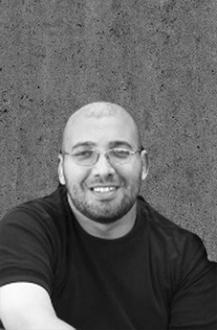
Dr. Abdulmoneim Alfiky
 Abdulmoneim Alfiky is an Assistant Professor at the Urban Design & Planning Dept.– Ain Shams University. He Has a B.Sc. in Urban Planning & design, an M.Sc. in Urban Environmental management and a PhD in Regional Planning & Modelling. His professional experience focuses on strategic and regional planning in rural areas of the Egyptian Nile Delta & Valley. He actively participated in several EU Funded projects between Ain Shams University and various European universities. He is currently involved in two research projects funded by the STDF on Urban Heat island & Smart management of Unplanned Areas.
He joined the IUSD Coordination Team at Ain Shams University in 2013. And From August 2014, he held the position of the IUSD Projects Coordinator. However, Since March 2022, he holds the Academic Coordinator position of IUSD at Ain Shams University.
Abdulmoneim Alfiky is an Assistant Professor at the Urban Design & Planning Dept.– Ain Shams University. He Has a B.Sc. in Urban Planning & design, an M.Sc. in Urban Environmental management and a PhD in Regional Planning & Modelling. His professional experience focuses on strategic and regional planning in rural areas of the Egyptian Nile Delta & Valley. He actively participated in several EU Funded projects between Ain Shams University and various European universities. He is currently involved in two research projects funded by the STDF on Urban Heat island & Smart management of Unplanned Areas.
He joined the IUSD Coordination Team at Ain Shams University in 2013. And From August 2014, he held the position of the IUSD Projects Coordinator. However, Since March 2022, he holds the Academic Coordinator position of IUSD at Ain Shams University.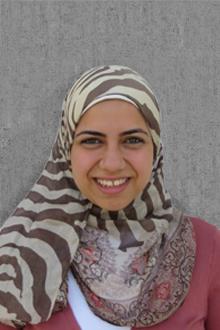
Eng. Nashwa Emad
 Nashwa Emad received her B.Sc. in Urban Planning and Design at Ain Shams University in 2012 and holds the position of a teaching assistant at the Department of Urban Planning and Design, Ain Shams University where she is currently enrolled as M.Sc. Candidate at Ain Shams. Nashwa is interested mainly in the role of landscape in the urban development of public open spaces, and its impact on the viability of the city. At the moment, Nashwa is a part time member of the IUSD Course Coordination Team at Ain Shams University.
Nashwa Emad received her B.Sc. in Urban Planning and Design at Ain Shams University in 2012 and holds the position of a teaching assistant at the Department of Urban Planning and Design, Ain Shams University where she is currently enrolled as M.Sc. Candidate at Ain Shams. Nashwa is interested mainly in the role of landscape in the urban development of public open spaces, and its impact on the viability of the city. At the moment, Nashwa is a part time member of the IUSD Course Coordination Team at Ain Shams University.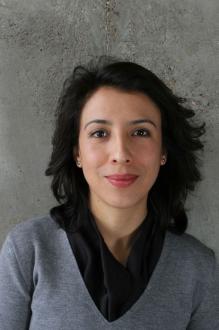
M.Arch. Marisol Rivas Velasquez
 Studied architecture at the Instituto Tecnológico y de Estudios Superiores de Monterrey Mexico (B.S. 1998) and received the Master of Excellence in Architecture at the Berlage Institute, Postgraduate Laboratory of Architecture (2002). Marisol Rivas Velázquez collaborated with several offices in Mexico and Belgium, among them the renowned offices of Teodoro González de León/ Mexico City, Ricardo Legorreta/ Mexico City and Stéphane Beel/ Ghent. She is a founding partner of the Ulm based practice "Architecture, Urbanism + Research Agency" (www.a-u-r-a.eu). Marisol Rivas Velazquez has been Visiting Professor at the ITESM Monterrey (2003 and 2004), Lecturer at the University of Technology, Munich (2005) and research assistant at the Institute of Design.Studio1 of Leopold-Franzens-University in Innsbruck (2005-2010). Since 2010 Marisol is research assistant at the Department of International Urbanism were she has been teaching and coordinating studies and research projects. In both her professional and academic practice Marisol's research interest evolve on the topics of culture conflicts, tourism and informal urban development with special focus on African and Latin American cities. She is teaching in the "Integrated Research and Design Project" Module within the IUSD at University of Stuttgart.
Studied architecture at the Instituto Tecnológico y de Estudios Superiores de Monterrey Mexico (B.S. 1998) and received the Master of Excellence in Architecture at the Berlage Institute, Postgraduate Laboratory of Architecture (2002). Marisol Rivas Velázquez collaborated with several offices in Mexico and Belgium, among them the renowned offices of Teodoro González de León/ Mexico City, Ricardo Legorreta/ Mexico City and Stéphane Beel/ Ghent. She is a founding partner of the Ulm based practice "Architecture, Urbanism + Research Agency" (www.a-u-r-a.eu). Marisol Rivas Velazquez has been Visiting Professor at the ITESM Monterrey (2003 and 2004), Lecturer at the University of Technology, Munich (2005) and research assistant at the Institute of Design.Studio1 of Leopold-Franzens-University in Innsbruck (2005-2010). Since 2010 Marisol is research assistant at the Department of International Urbanism were she has been teaching and coordinating studies and research projects. In both her professional and academic practice Marisol's research interest evolve on the topics of culture conflicts, tourism and informal urban development with special focus on African and Latin American cities. She is teaching in the "Integrated Research and Design Project" Module within the IUSD at University of Stuttgart.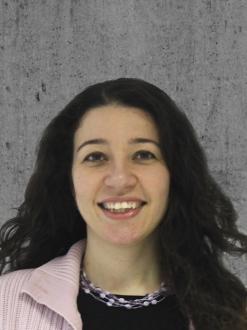
MSc. Ebtihal Abbas
 Ebtihal Abbas is an urban planner and designer holding a MSc. in Integrated Urbanism and Sustainable Design (IUSD) from Stuttgart University in Germany and Ain Shams University (ASU) in Egypt. Ebtihal completed her bachelor of Regional and Urban Planning from Cairo University in 2004. Since then, she has been actively engaged in international multidisciplinary environments in both Egypt and Gulf Cooperation Council (G.C.C) where she was involved in projects varying from a national level to municipal, city centers and neighborhoods’ redevelopment. ‘Urban Development and Revitalization of Downtown-Cairo’ in Egypt, the ‘Pearl-Qatar in Doha’ and ‘Qatar National Master Plan’ in the G.C.C are among the major projects she participated in. Her interests in the role of civil society as well as the influences of political and socio-economical factors on urban development were the basis for her masters’ dissertation. She has also been involved in some freelancing projects, such as taking part in ‘Preparing the Guidance Physical Plans for the Egyptian Villages’- (GOPP), copyediting of the Arabic exhibition contents for ‘Space, Time, Dignity, Rights’- (UNRWA) and assisting in the community participation process for upgrading historical areas in old Cairo in ‘Al Athar Lena’ – (DEDI). She joined the IUSD Course Coordination Team at Ain Shams University in October 2013.
Ebtihal Abbas is an urban planner and designer holding a MSc. in Integrated Urbanism and Sustainable Design (IUSD) from Stuttgart University in Germany and Ain Shams University (ASU) in Egypt. Ebtihal completed her bachelor of Regional and Urban Planning from Cairo University in 2004. Since then, she has been actively engaged in international multidisciplinary environments in both Egypt and Gulf Cooperation Council (G.C.C) where she was involved in projects varying from a national level to municipal, city centers and neighborhoods’ redevelopment. ‘Urban Development and Revitalization of Downtown-Cairo’ in Egypt, the ‘Pearl-Qatar in Doha’ and ‘Qatar National Master Plan’ in the G.C.C are among the major projects she participated in. Her interests in the role of civil society as well as the influences of political and socio-economical factors on urban development were the basis for her masters’ dissertation. She has also been involved in some freelancing projects, such as taking part in ‘Preparing the Guidance Physical Plans for the Egyptian Villages’- (GOPP), copyediting of the Arabic exhibition contents for ‘Space, Time, Dignity, Rights’- (UNRWA) and assisting in the community participation process for upgrading historical areas in old Cairo in ‘Al Athar Lena’ – (DEDI). She joined the IUSD Course Coordination Team at Ain Shams University in October 2013.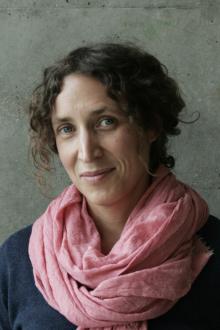
MSc. Julia Hartmann
 Since obtaining her BSc(Hons) in Architecture at the University of East London in 2002, Julia’s work experience with award-winning practices such as WWMArchitects (London) and ‘die Baupiloten’ (Berlin) has ranged from public space design to the scale of strategic urban framework plans and has included clients such as the London Development Agency (LDA), Hackney Council (London), Nature Park Vitosha (Bulgaria), and Amnesty International. Julia has also been teaching design-build workshop formats at several Universities in Britain and Bulgaria and worked with NGOs Shoreditch Trust (UK), THF (TAR, China) and Ziva Zemia (Bulgaria) on issues of resident-led urban regeneration and local construction skills transfer. In 2013, she completed the MSc IUSD at the University of Stuttgart with a thesis on neighbourhood-based urban upgrading and mobilization processes in Cairo’s informal settlements. Her current research interests evolve around marginalized urban spaces, their inhabitants, and the potential they harbour for the construction, sustenance and defence of the urban commons. A member of several exhibition and publication teams, Julia has recently made editorial contributions to the exhibitions “Beyond Tourism-Zanzibar” (with Weissenhof-Galerie Stuttgart 2013); “Space Time Dignity Rights-Improving Palestinian Refugee Camps” (with UNRWA and GIZ 2012) and to the 2014/2 issue of “Trialog - Journal for Planning and Building in the Third World”.
Since obtaining her BSc(Hons) in Architecture at the University of East London in 2002, Julia’s work experience with award-winning practices such as WWMArchitects (London) and ‘die Baupiloten’ (Berlin) has ranged from public space design to the scale of strategic urban framework plans and has included clients such as the London Development Agency (LDA), Hackney Council (London), Nature Park Vitosha (Bulgaria), and Amnesty International. Julia has also been teaching design-build workshop formats at several Universities in Britain and Bulgaria and worked with NGOs Shoreditch Trust (UK), THF (TAR, China) and Ziva Zemia (Bulgaria) on issues of resident-led urban regeneration and local construction skills transfer. In 2013, she completed the MSc IUSD at the University of Stuttgart with a thesis on neighbourhood-based urban upgrading and mobilization processes in Cairo’s informal settlements. Her current research interests evolve around marginalized urban spaces, their inhabitants, and the potential they harbour for the construction, sustenance and defence of the urban commons. A member of several exhibition and publication teams, Julia has recently made editorial contributions to the exhibitions “Beyond Tourism-Zanzibar” (with Weissenhof-Galerie Stuttgart 2013); “Space Time Dignity Rights-Improving Palestinian Refugee Camps” (with UNRWA and GIZ 2012) and to the 2014/2 issue of “Trialog - Journal for Planning and Building in the Third World”.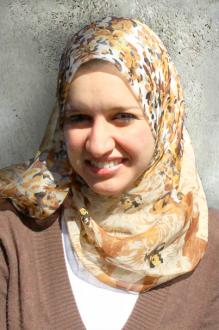
MSc. Mona Mannoun
 Mona Mannoun received her BSc in Architectural Engineering from Misr International University, Egypt in 2008. Her Master thesis at the Department of Urban Planning at Ain Shams University, 2014 is on “Self-developed Areas in Egypt”, focusing on the urban fabric and the architectural elements of different case studies in Egypt and Germany that depend on people who build their own neighborhood. In addition, Mona Mannoun works on a hands-on project related to informal settlements. She worked at ökoplan and IDG consultancy offices in Cairo between 2009 to 2010 and 2010 to 2012. Since May 2010 Mona is the assistant programme coordinator for the MSc IUSD at Ain Shams University Cairo.
Mona Mannoun received her BSc in Architectural Engineering from Misr International University, Egypt in 2008. Her Master thesis at the Department of Urban Planning at Ain Shams University, 2014 is on “Self-developed Areas in Egypt”, focusing on the urban fabric and the architectural elements of different case studies in Egypt and Germany that depend on people who build their own neighborhood. In addition, Mona Mannoun works on a hands-on project related to informal settlements. She worked at ökoplan and IDG consultancy offices in Cairo between 2009 to 2010 and 2010 to 2012. Since May 2010 Mona is the assistant programme coordinator for the MSc IUSD at Ain Shams University Cairo.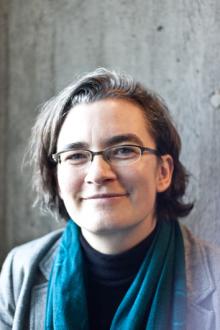
Prof. Antje Stokman

Antje Stokman studied landscape architecture at Hanover University and Edinburgh College of Art. After graduation she gained practical experiences as a landscape architect in many international projects and was Associate Professor in Hanover University from 2005-2010.
Since 2010 she is director of the Institute of Landscape Planning and Ecology within Stuttgart University and founding partner of the practice "osp urbanelandschaften" in Hamburg. Making use of the synergies between science, teaching and practice, her work evolves around the aim to develop new areas of involvement and design approaches for the profession of landscape architecture – by defining it as the art of integrating complex ecosystems, infrastructure systems and human lifeworlds.
She was awarded the Topos Landscape Award in 2011, the Lower Saxony Science Prize in 2009 and is member of the German national advisory council on spatial planning since 2010.
Since the implementation of the MSc IUSD, she is Director of Admissions and teaches in various courses within the IUSD. She is the Course Director of the MSc IUSD and teaches in various courses within the IUSD at University of Stuttgart.
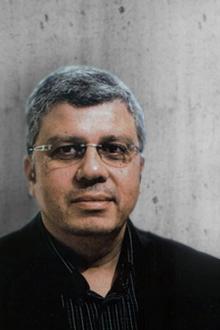
Prof. Dr. Ayman Ashour
 Mohamed Ayman Ashour holds the chair of a Professor of Architecture and Urban Planning and the position of the Vice Dean for Graduate Studies and Research at the Faculty of Engineering, Ain Shams University. Combining educational and technical experience between academic and professional work enriched Prof. Ashour with a sense of specialized consulting experience and made his theoretical guidance settled and valuable with a future aspiration for a generation that carries the heritage and legacy of the past to the rapid developing world of the future. His work focuses on projects of technical engineering, comprehensive planning providing integrated consultancy services in Master Planning, Urban Design, Landscape Design, Architecture and Interior Design as well as Project Management and Construction Supervision. He is the Director of Admission of the MSc IUSD and supervises various master theses within the IUSD at Ain Shams University.
Mohamed Ayman Ashour holds the chair of a Professor of Architecture and Urban Planning and the position of the Vice Dean for Graduate Studies and Research at the Faculty of Engineering, Ain Shams University. Combining educational and technical experience between academic and professional work enriched Prof. Ashour with a sense of specialized consulting experience and made his theoretical guidance settled and valuable with a future aspiration for a generation that carries the heritage and legacy of the past to the rapid developing world of the future. His work focuses on projects of technical engineering, comprehensive planning providing integrated consultancy services in Master Planning, Urban Design, Landscape Design, Architecture and Interior Design as well as Project Management and Construction Supervision. He is the Director of Admission of the MSc IUSD and supervises various master theses within the IUSD at Ain Shams University.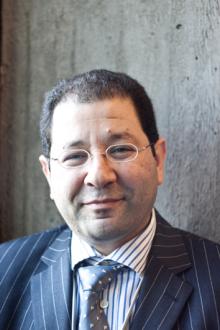
Prof. Dr. Mohamed Salheen

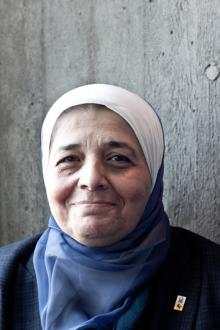
Prof. Dr. Youhansen Y. Eid
 After receiving her B.Sc. in Architectural Engineering, Youhansen Eid received her M. Arch. (1986), and her Ph.D. in Urban Planning from the University of Southern California (1992). Since then, she has worked at the Faculty of Engineering ASU. She held the positions of head of the department of Urban Planning (2007-2009) and Vice-Dean at the Faculty of Engineering (2009-2011). Prof. Eid conducted a private architectural and planning practice and held planning consulting positions in some agencies in Egypt including GAEB and GOPP. Her research interests include the impact of socio-political and technological changes on urban form, strategic planning and sustainability. Currently she is Professor of Urban Planning at Ain Shams University and Visiting Professor at the British University Egypt. She was Head of Admission for the IUSD programme and is now involved in teaching and supervision of master theses at Ain Shams University.
After receiving her B.Sc. in Architectural Engineering, Youhansen Eid received her M. Arch. (1986), and her Ph.D. in Urban Planning from the University of Southern California (1992). Since then, she has worked at the Faculty of Engineering ASU. She held the positions of head of the department of Urban Planning (2007-2009) and Vice-Dean at the Faculty of Engineering (2009-2011). Prof. Eid conducted a private architectural and planning practice and held planning consulting positions in some agencies in Egypt including GAEB and GOPP. Her research interests include the impact of socio-political and technological changes on urban form, strategic planning and sustainability. Currently she is Professor of Urban Planning at Ain Shams University and Visiting Professor at the British University Egypt. She was Head of Admission for the IUSD programme and is now involved in teaching and supervision of master theses at Ain Shams University.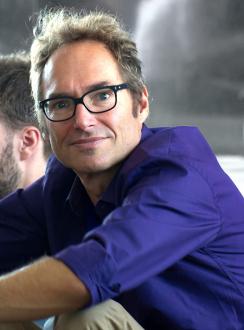
Prof. Ingo Helmedag
 Ingo Helmedag studied architecture at Hanover University and at Graz University of Technology. After graduating from Hanover University he worked as an architect in a number of projects. Starting in 1993, he has taught as an assistant professor for Building Construction and Design at Dresden University of Technology. For the Faculty of Architecture, he established the European Erasmus Program and furthered worldwide University exchange. In 1998, he was a visiting professor at the UBC, Vancouver. His focus and research interest is on building technique and sustainable design. After joining DAAD in 2008, Ingo Helmedag became professor for Building Techniques and Design at the German Jordanian University (GJU) in Amman, where he remained until his transfer to Cairo’s Ain Shams University (IUSD Master Program) in September 2012.
Ingo Helmedag studied architecture at Hanover University and at Graz University of Technology. After graduating from Hanover University he worked as an architect in a number of projects. Starting in 1993, he has taught as an assistant professor for Building Construction and Design at Dresden University of Technology. For the Faculty of Architecture, he established the European Erasmus Program and furthered worldwide University exchange. In 1998, he was a visiting professor at the UBC, Vancouver. His focus and research interest is on building technique and sustainable design. After joining DAAD in 2008, Ingo Helmedag became professor for Building Techniques and Design at the German Jordanian University (GJU) in Amman, where he remained until his transfer to Cairo’s Ain Shams University (IUSD Master Program) in September 2012.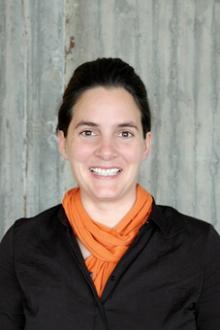
Vertr. Prof. Nina Gribat
 After completing a Diploma in Architecture and Urban Design (TU Berlin), the Bauhauskolleg Transitspaces (Bauhaus Dessau) and a MA in Planning Research and Theory (The University of Sheffield) Nina Gribat obtained her PhD on the topic of “Governing the Future of a Shrinking City: Hoyerswerda, East Germany” at the Department of Architecture and Planning at Sheffield Hallam University. Her research interests include governing processes of urban shrinkage and informal urban developments. Nina often works with Foucault's writings on governmentality and their potential contributions to reconceptualising critical planning and urban theory. Since April 2011 Nina was part of the IUSD Course Coordinatino Team and teaching in the "Urban Policy, Planning and Sustainable Urban Management" Core Module. Since 2013 she is interim director of the International Urbanism Institute at University of Stuttgart.
After completing a Diploma in Architecture and Urban Design (TU Berlin), the Bauhauskolleg Transitspaces (Bauhaus Dessau) and a MA in Planning Research and Theory (The University of Sheffield) Nina Gribat obtained her PhD on the topic of “Governing the Future of a Shrinking City: Hoyerswerda, East Germany” at the Department of Architecture and Planning at Sheffield Hallam University. Her research interests include governing processes of urban shrinkage and informal urban developments. Nina often works with Foucault's writings on governmentality and their potential contributions to reconceptualising critical planning and urban theory. Since April 2011 Nina was part of the IUSD Course Coordinatino Team and teaching in the "Urban Policy, Planning and Sustainable Urban Management" Core Module. Since 2013 she is interim director of the International Urbanism Institute at University of Stuttgart.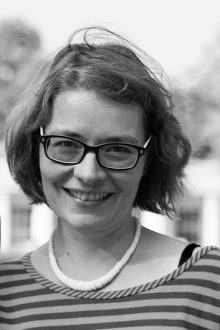
Prof. Dr. Leonie Fischer

Since October 2019, Leonie Fischer is chair of the Institute of Landscape Planning and Ecology at the University of Stuttgart.
Before, Leonie Fischer worked as scientist at the Chair of Ecosystem Science/Plant Ecology, Technische Universität Berlin. She completed her PhD thesis in 2012 on “Urban meadows: biodiversity patterns and restoration potential” within the Graduate School Urban Ecology Berlin, together with Humboldt Universität zu Berlin. Her professional background is in Landscape Planning and Landscape Architecture, including a final thesis on the “Ecological impacts of the introduced quinine tree (Cinchona spp.) in Hawai'i”.
Her scientific focus is especially on the ecology of human-influenced habitats in both tropical and moderate regions, including urban ecology and urban restoration. Leonie Fischer also works on a deeper understanding on how people value urban nature, and what influences their attitudes. Basic part of her research work is its practical orientation and application.

Prof. Dr. Mohamed Salheen
 Mohamed Salheen obtained his BSc in Urban Planning and Design in 1993 from Ain Shams University, Cairo. He was appointed as teaching staff at the department and later received a PhD scholarship to obtain his PhD in Urban Design from Edinburgh College of Art, UK in 1997 with a thesis on “Comprehensive Analysis Approaches in Urban Settings”. From 2001 until 2014 he acted as an assistant and associate professor at Ain Shams University teaching and supervising multidisciplinary topics. Developing a clear research line in the field of Integrated Planning and Design, he then became the first professor of Integrated Planning and Design in Egypt. To develop this research field Salheen had to develop various research lines at different levels ranging from Architectural Design to Regional Planning with diverse topics ranging from spatial Analysis to socioeconomic and cultural aspects, yet all focused on the intermediate gaps and Integrated Solutions. He has coordinated several international cooperation projects with Universities in Germany, Sweden, Austria and Denmark. He is a member of the EU Higher Education reform Experts (HEREs) Team, contributing to various workshops and seminars on internationalization and harmonization of Higher Education. Salheen is also active in practice and consultation working with GIZ, UN-Habitat, UNEP and UNDP as well as other national and regional organizations in the fields of strategic, environmental and integrated planning and design.
Mohamed Salheen obtained his BSc in Urban Planning and Design in 1993 from Ain Shams University, Cairo. He was appointed as teaching staff at the department and later received a PhD scholarship to obtain his PhD in Urban Design from Edinburgh College of Art, UK in 1997 with a thesis on “Comprehensive Analysis Approaches in Urban Settings”. From 2001 until 2014 he acted as an assistant and associate professor at Ain Shams University teaching and supervising multidisciplinary topics. Developing a clear research line in the field of Integrated Planning and Design, he then became the first professor of Integrated Planning and Design in Egypt. To develop this research field Salheen had to develop various research lines at different levels ranging from Architectural Design to Regional Planning with diverse topics ranging from spatial Analysis to socioeconomic and cultural aspects, yet all focused on the intermediate gaps and Integrated Solutions. He has coordinated several international cooperation projects with Universities in Germany, Sweden, Austria and Denmark. He is a member of the EU Higher Education reform Experts (HEREs) Team, contributing to various workshops and seminars on internationalization and harmonization of Higher Education. Salheen is also active in practice and consultation working with GIZ, UN-Habitat, UNEP and UNDP as well as other national and regional organizations in the fields of strategic, environmental and integrated planning and design.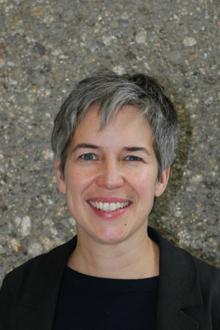
Prof. Dr. Astrid Ley

Astrid Ley studied architecture and urban design at RWTH Aachen and the Università degli Studi di Firenze in Italy. She holds a degree as graduate engineer in architecture and urban design from RWTH Aachen and a P.hD from TU Berlin. Her professional life started as a project coordinator at the “Bundesweite Servicestelle Lokale Agenda 21”, Agenda-Transfer, in Bonn before joining Habitat Unit, TU Berlin, between 2003 and 2013 as a teaching and research staff member. In 2010 she had a DAAD lectureship position at the School of Architecture and Planning, University of the Witwatersrand in Johannesburg, South Africa. Recently she held a position as urban development research analyst at the German Advisory Council on Global Change (WBGU) and as a Post Doc researcher in a DFG funded research project on “Housing for the Urban Poor: From Local Action to Global Networks” at Habitat Unit, TU Berlin. Since October 2014 she is chair for international urbanism at the Institute for Urban Planning and Design, University of Stuttgart, and will take over the position as course director of the MSc. IUSD program. In her understanding it needs the development of a changed role of built environment practitioners as process designers in order to be able to include a network of actors. This will be central to develop solutions in complex problem constellations such as apparent in the international urban development context.
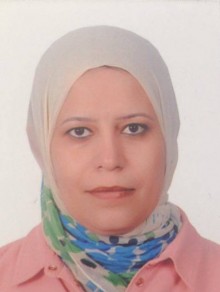
Assoc. Prof. Abeer Elshater
 Abeer Elshater is associate professor at Ain Shams University. She obtained her BSc in urban design and spatial planning in 1999 from Ain Shams University, Cairo, Egypt. In 2009, she received her Ph.D. in urban design from the same university.
Since then, she has acted as an assistant professor then an associate professor, teaching and supervising multidisciplinary topics in the ideology of urban design. She has worked on some international research projects with international universities. In 2011, she joined the program Integrated Urbanism & Sustainable Design—IUSD as a teaching staff and academic adviser of post-graduate students. She has published two books entitled “Urban Design Paradigm” (2015), and “The Unknown Cities” (2016) as well as twenty –one scientific manuscripts in international journals and periodicals. She is a vice-director of Contagious Improvement of Quality Assurance Unit—CIQAU at Faculty of Engineering, Ain Shams University — ASU. Her official e-mail is abeer.elshater@eng.asu.edu.eg
Abeer Elshater is associate professor at Ain Shams University. She obtained her BSc in urban design and spatial planning in 1999 from Ain Shams University, Cairo, Egypt. In 2009, she received her Ph.D. in urban design from the same university.
Since then, she has acted as an assistant professor then an associate professor, teaching and supervising multidisciplinary topics in the ideology of urban design. She has worked on some international research projects with international universities. In 2011, she joined the program Integrated Urbanism & Sustainable Design—IUSD as a teaching staff and academic adviser of post-graduate students. She has published two books entitled “Urban Design Paradigm” (2015), and “The Unknown Cities” (2016) as well as twenty –one scientific manuscripts in international journals and periodicals. She is a vice-director of Contagious Improvement of Quality Assurance Unit—CIQAU at Faculty of Engineering, Ain Shams University — ASU. Her official e-mail is abeer.elshater@eng.asu.edu.eg
Assoc. Prof. Dr. Yehya Serag

Yehya Serag received a Bachelor degree in Architecture with a major in Urban Planning and Design from Ain Shams University, Cairo. He, then, obtained his MA in human settlements (PGCHS – Catholic University of Leuven) as well as a Post Graduate Certificate in spatial and regional planning after completing the European Module for spatial development and planning (New Castle University). He graduated with a PhD on the topic “Networking and networks as tools for regional development and planning: Human settlements’ development potentialities in the Western part of Egypt” from the department of Architecture, spatial planning and landscape (Catholic University of Leuven). Since April 2014, Serag holds the position of an associate professor of urban and regional planning at the Department of Urban Planning and Design at Ain Shams University. Starting from December 2010, he coordinates the MSc IUSD. He is currently interested in the impact of politics on urbanism as a new line of research, as well as , urban and regional strategic planning and development.

Dr. Marwa Abdellatif

Marwa Abdellatif obtained a B.Sc. in Urban Planning and Design (Ain Shams University, Cairo, 2000) and a M.Sc. in ecotourism in the Western Desert of Egypt (ASU, 2006), and received her PhD on the topic of ‘Paradigms for Spatial Planning – Transformations in the Planning System of Egypt’ (ASU, 2013). She currently holds the position of an assistant professor at the Department of Urban Planning and Design, Ain Shams University. She is particularly interested in exploring new pedagogical approaches for education of spatial planning. She participated in a number of workshops in Egypt and Germany on higher education. In 2011, she co-founded ‘Letaarfo’ initiative to deepen the understanding of the interwoven relationships of people and places. She is a programme coordinator of the MSc. IUSD at Ain Shams University, Cairo.
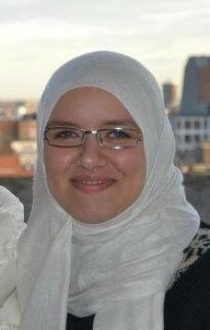
Dr. Ayat Ismail

Urban Planner, Designer and Educator
Ayat’s work focuses on planning and design theories; urban change, global cities, new urbanism, and landscape architecture, generally speaking she is fascinated by anything that affects the city.
She obtained her Ph.D degree from Cosmopolis (Centre for Urban Research), in the Vrije Univesieit Brussel (VUB), Belgium. She received her B.Sc. and M.Sc. from the Department of Urban Planning and Design, Ain Shams University (ASU), Egypt and eventually earned her spot as a Researcher and Assistant professor in the same Department. In addition to her teaching at ASU and research contributions at the VUB, Ayat, has also been involved on a more practical level with several planning and design firms.
contact: ayat.ismail@eng.asu.edu.eg
or visit her Academia profile https://shams.academia.edu/AyatIsmail

Dr. Abdulmoneim Alfiky
 Abdulmoneim Alfiky is an Assistant Professor at the Urban Design & Planning Dept.– Ain Shams University. He Has a B.Sc. in Urban Planning & design, an M.Sc. in Urban Environmental management and a PhD in Regional Planning & Modelling. His professional experience focuses on strategic and regional planning in rural areas of the Egyptian Nile Delta & Valley. He actively participated in several EU Funded projects between Ain Shams University and various European universities. He is currently involved in two research projects funded by the STDF on Urban Heat island & Smart management of Unplanned Areas.
He joined the IUSD Coordination Team at Ain Shams University in 2013. And From August 2014, he held the position of the IUSD Projects Coordinator. However, Since March 2022, he holds the Academic Coordinator position of IUSD at Ain Shams University.
Abdulmoneim Alfiky is an Assistant Professor at the Urban Design & Planning Dept.– Ain Shams University. He Has a B.Sc. in Urban Planning & design, an M.Sc. in Urban Environmental management and a PhD in Regional Planning & Modelling. His professional experience focuses on strategic and regional planning in rural areas of the Egyptian Nile Delta & Valley. He actively participated in several EU Funded projects between Ain Shams University and various European universities. He is currently involved in two research projects funded by the STDF on Urban Heat island & Smart management of Unplanned Areas.
He joined the IUSD Coordination Team at Ain Shams University in 2013. And From August 2014, he held the position of the IUSD Projects Coordinator. However, Since March 2022, he holds the Academic Coordinator position of IUSD at Ain Shams University.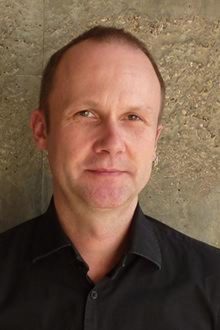
Dipl.Ing. Rainer Goutrié

Rainer Goutrié holds a diploma in architecture from University of Stuttgart. During the years 2000-2005 he was working as a project architect in different companies planning and constructing public buildings and residential houses. He won several prices in architectural and urban planning competitions. From 2004 until 2010 he was working and teaching in the department of urban planning and design, chair of Prof Dr.-Ing. Helmut Bott, University of Stuttgart. His field of work was the urban planning education of 2nd year students and design classes for higher semester students. These mainly international related design classes and study trips lead him to e.g. Turkey, France, Netherlands and Brazil. In 2010 he started working as the coordinator of the “international module”, a compulsory part of Bsc. education that means working or studying abroad and he organizes the international office of the faculty of architecture and urban planning. Since 2016 he is part of the IUSD course coordinator team at University of Stuttgart.
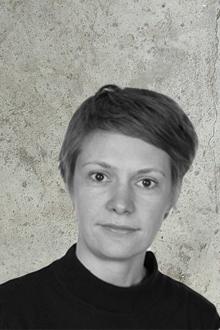
Dr. Ing. Josefine Fokdal

After completing her diploma in architecture and international urbanism from TU Berlin (DE), a Masters from Ball State University (USA), Josefine (*1980) obtained her PhD in 2014 from TU Berlin on the topic: Embodiment of the Urban-Relational Space in the Mega City of Guangzhou. Between 2009 and 2014 she has been teaching and researching at the Habitat Unit, department of International Urbanism at TU Berlin. Her research and writings span the fields of spatial theory, housing, governance and rapid urbanization with a geographical focus on Asia. Some of her recent publications include a co-authored monograph on urban villages in south China Beyond Urbanism (LIT 2014), a co-edited volume From Local Action to Global Networking: Housing the Urban Poor (Ashgate 2015), and reflections on the urban informality discourse(Geographische Zeitschrift 2011 (9)).
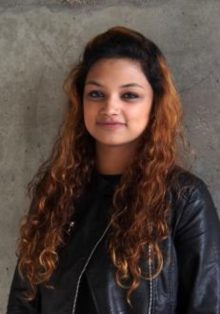
MSc. Shaharin Annisa

Shaharin Elham Annisa was born in Bangladesh but grew up in Oman, completing her Bachelor’s degree at the German University of Technology (GUtech) in Oman, studying Urban Planning and Architectural Design (UPAD).She joined the UPAD department at GUtech after her graduation and worked as a teaching and research assistant for two years. Her bachelor thesis focused on creating a series of public squares at the city center of Al Buraimi (a border city of Oman). Furthermore she was involved in the design, construction and monitoring phase of Gutech’s Eco friendly house; a result of a competition which her team of students, academic staff and consultants had the opportunity to receive funds to win and construct. She finished her Master’s degree in University of Stuttgart in the program Integrated Urbanism and Sustainable design (IUSD) research on understanding the spatial effects of migration and livelihood of Bangladeshi immigrants in Oman (Gulf context). During her master studies she was part of the EZBET project based in Cairo working on the development of informal settlements. Her interests lie in earthen construction, urban informality and migration studies.
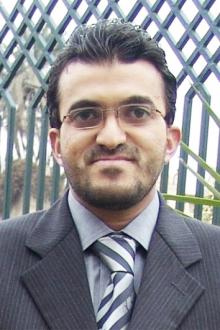
Dr. Ahmed Toimah

Ahmed Toimah has about 12 years of academic, professional and practical experience in the field of spatial planning and regional and rural development. His academic experience includes an MSc thesis in “Interaction between urban and rural settlements”, a PhD thesis in “Urban rural balance” and a teaching experience in planning, housing and rural development courses. His professional experience includes participation in a wide range of projects including strategic planning, regional development and urban design for a number of government agencies, international organizations and private sector, and that was in cooperation with different consulting firms in Egypt, United States, Germany, Saudi Arabia, and Libya. Also he has practiced farming and ranching for more than 10 years in his family farms in Monfeia governorate and Wadi El-Natroun. Ahmad Toimah has a wide network in various rural local communities and agricultural business community. Since 2012 Ahmed was teaching the IUSD elective "Rural Development" at the Ain Shams University in Cairo.

M.Arch. Marisol Rivas-Velázque

Studied architecture at the Instituto Tecnológico y de Estudios Superiores de Monterrey Mexico (B.S. 1998) and received the Master of Excellence in Architecture at the Berlage Institute, Postgraduate Laboratory of Architecture (2002). Marisol Rivas Velázquez collaborated with several offices in Mexico and Belgium, among them the renowned offices of Teodoro González de León/ Mexico City, Ricardo Legorreta/ Mexico City and Stéphane Beel/ Ghent. She is a founding partner of the Ulm based practice "Architecture, Urbanism + Research Agency" (www.a-u-r-a.eu). Marisol Rivas Velazquez has been Visiting Professor at the ITESM Monterrey (2003 and 2004), Lecturer at the University of Technology, Munich (2005) and research assistant at the Institute of Design.Studio1 of Leopold-Franzens-University in Innsbruck (2005-2010). Since 2010 Marisol is research assistant at the Department of International Urbanism were she has been teaching and coordinating studies and research projects. In both her professional and academic practice Marisol's research interest evolve on the topics of culture conflicts, tourism and informal urban development with special focus on African and Latin American cities. She is teaching in the "Integrated Research and Design Project" Module within the IUSD at University of Stuttgart.

Prof. Dr. Ayman Ashour
 Mohamed Ayman Ashour holds the chair of a Professor of Architecture and Urban Planning and the position of the Vice Dean for Graduate Studies and Research at the Faculty of Engineering, Ain Shams University. Combining educational and technical experience between academic and professional work enriched Prof. Ashour with a sense of specialized consulting experience and made his theoretical guidance settled and valuable with a future aspiration for a generation that carries the heritage and legacy of the past to the rapid developing world of the future. His work focuses on projects of technical engineering, comprehensive planning providing integrated consultancy services in Master Planning, Urban Design, Landscape Design, Architecture and Interior Design as well as Project Management and Construction Supervision. He is the Director of Admission of the MSc IUSD and supervises various master theses within the IUSD at Ain Shams University.
Mohamed Ayman Ashour holds the chair of a Professor of Architecture and Urban Planning and the position of the Vice Dean for Graduate Studies and Research at the Faculty of Engineering, Ain Shams University. Combining educational and technical experience between academic and professional work enriched Prof. Ashour with a sense of specialized consulting experience and made his theoretical guidance settled and valuable with a future aspiration for a generation that carries the heritage and legacy of the past to the rapid developing world of the future. His work focuses on projects of technical engineering, comprehensive planning providing integrated consultancy services in Master Planning, Urban Design, Landscape Design, Architecture and Interior Design as well as Project Management and Construction Supervision. He is the Director of Admission of the MSc IUSD and supervises various master theses within the IUSD at Ain Shams University.
Prof. Antje Stokman

Antje Stokman studied landscape architecture at Hanover University and Edinburgh College of Art. After graduation she gained practical experiences as a landscape architect in many international projects and was Associate Professor in Hanover University from 2005-2010. Since 2010 she is director of the Institute of Landscape Planning and Ecology within Stuttgart University and founding partner of the practice "osp urbanelandschaften" in Hamburg. Making use of the synergies between science, teaching and practice, her work evolves around the aim to develop new areas of involvement and design approaches for the profession of landscape architecture – by defining it as the art of integrating complex ecosystems, infrastructure systems and human lifeworlds. She was awarded the Topos Landscape Award in 2011, the Lower Saxony Science Prize in 2009 and is member of the German national advisory council on spatial planning since 2010. Since the implementation of the MSc IUSD, she is Director of Admissions and teaches in various courses within the IUSD. She is the Course Director of the MSc IUSD and teaches in various courses within the IUSD at University of Stuttgart.
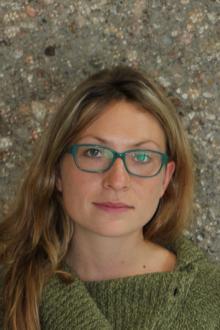
Dipl.-Ing. Ines Wulfer

Ines Wulfert studied at the University of Stuttgart, where she received her diploma of Architecture and Urban Planning in 2014. During her studies she developped a strong interest in projects with a social and ecological approach, which at the same time were not only planned, but also practically implemented in different cultural and spatial contexts. For that purpose she joined several international summerschools, in Southafrica, Egypt and Peru. During an internship of three months in a well established grassroots organisation in Rwanda, she gained deep insights in the fields of architecture and infrastructure planning as tool for sustainable development aid. Since September 2014 Ines started to work as a research assistant at the Institute for International Urbanism and was part of the IUSD Course Coordination Team at the University of Stuttgart, where she represented Raoul Humpert during his PhD research trip to Tunisia.
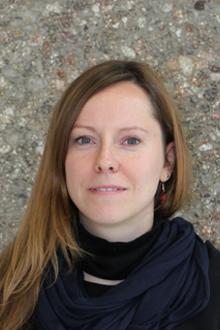
Dipl.-Ing. MSc. Franziska Laue

Franziska Laue holds a Diploma in Architecture from TU Berlin and a M.Sc. in Integrated Urbanism and Sustainable Design (IUSD) Stuttgart/Cairo. Since 2003 she was engaged as a freelance advisor in projects in Germany, Syria and Burkina Faso and Egypt. From 2007 until 2011 she worked for the GIZ Urban Development Programme (UDP) in Aleppo. Since 2008 she was involved in local and international conferences, exhibitions and publications on local identity, informal urban development in the MENA region. Recently, Franziska was member of exhibition and publication teams for “Aleppo Archive” (DOC Aleppo) on urban heritage conservation and archiving as well as “Space Time Dignity Rights” (DAZ Berlin) on refugee camp improvement strategies. She has published on a long-term research on informal urban growth in Damascus, Syria. A present academic focus is climate change adaptation in the MENA region. Since October 2013 she is research assistant at the International Urbanism Institute and is part of the IUSD Course Coordination Team at University of Stuttgart.
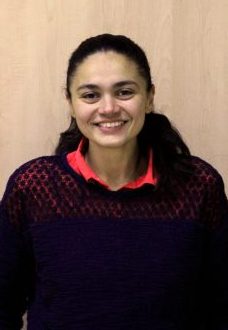
Eng. Aya El-Wageeh
 Aya El-Wageeh (1989) graduated from Ain Shams University department of Urban Planning and Design in 2011. Afterwards, she worked as a teacher assistant at the same university and a researcher in integrated development Group (IDG). In this period, she worked on an outreach plan for community participation in Cairo Future Vision. In 2014, she obtained her MSc. in Integrated Urbanism and Sustainable Design (IUSD) from Stuttgart University in Germany and Ain Shams University in Egypt with special focus on development in remote areas. Since then, Aya has been working as assistant lecturer and joined the IUSD- Cairo team as a teaching assistant and researcher on different themes such as Eco-neighborhoods in New Cairo and approaches in dealing with upgrading informal areas. Aya is a PhD. candidate whose research interest is in urban retrofitting and neighborhood urban development.
Aya El-Wageeh (1989) graduated from Ain Shams University department of Urban Planning and Design in 2011. Afterwards, she worked as a teacher assistant at the same university and a researcher in integrated development Group (IDG). In this period, she worked on an outreach plan for community participation in Cairo Future Vision. In 2014, she obtained her MSc. in Integrated Urbanism and Sustainable Design (IUSD) from Stuttgart University in Germany and Ain Shams University in Egypt with special focus on development in remote areas. Since then, Aya has been working as assistant lecturer and joined the IUSD- Cairo team as a teaching assistant and researcher on different themes such as Eco-neighborhoods in New Cairo and approaches in dealing with upgrading informal areas. Aya is a PhD. candidate whose research interest is in urban retrofitting and neighborhood urban development. 
Dr.-Ing. Bernd Eisenberg
 Bernd Eisenberg completed a diploma in Landscape and Open Space Planning at TU Hannover and worked in the field of GIS-based planning in Hamburg and Stuttgart. He obtained his PhD on the topic of “Park metrics - quantification methods for spatial potentials of green open spaces with regard to recreational uses” at the University of Stuttgart. Bernd is involved in ongoing research activities of the Institute of Landscape Planning and Ecology (ILPÖ) related to sustainability and resilience of cities (projects LiWa and TURaS) and international educational cooperations. His research interests include quantification methods of open space qualities in general and in particular the relation between spatial configuration and usability as outlined in the space syntax research field. Since October 2010 Bernd is part of the IUSD Course Coordination Team at University of Stuttgart and is involved in teaching electives within the IUSD at University of Stuttgart.
Bernd Eisenberg completed a diploma in Landscape and Open Space Planning at TU Hannover and worked in the field of GIS-based planning in Hamburg and Stuttgart. He obtained his PhD on the topic of “Park metrics - quantification methods for spatial potentials of green open spaces with regard to recreational uses” at the University of Stuttgart. Bernd is involved in ongoing research activities of the Institute of Landscape Planning and Ecology (ILPÖ) related to sustainability and resilience of cities (projects LiWa and TURaS) and international educational cooperations. His research interests include quantification methods of open space qualities in general and in particular the relation between spatial configuration and usability as outlined in the space syntax research field. Since October 2010 Bernd is part of the IUSD Course Coordination Team at University of Stuttgart and is involved in teaching electives within the IUSD at University of Stuttgart.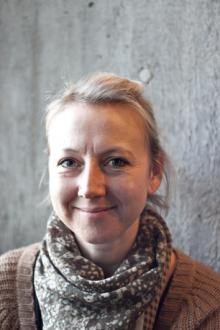
Dipl.-Ing. Lynn Mayer

Lynn Mayer obtained the degree of Architecture at the University of Stuttgart in 2005. She worked in the architectural office LCM in Mexico City and took terms abroad in Barcelona and Cairo during her studies. After her thesis, she worked as a senior project architect for LIGANOVA, a multidisciplinary office of Brand&Retail Marketing in Stuttgart, Berlin and London. Her projects included mainly the interior design and furniture design, CI Design and Marketingstrategies for several Brands like Hugo Boss, Levi´s Blue and Dr. Hauschka. Parallel to her professional practice with small architectural projects, she is a research assistant at Stuttgart University at the Instiute of Urban Design. Since September 2011 Lynn was also a reseach assistant at the International Urbanism Institute and part of IUSD Course Coordination Team at University of Stuttgart.

Dipl.-Ing. Moritz Bellers
 After completing a Diploma in landscape and open space planning at Leibniz University Hannover in 2008 and landscape architecture (between 2004 and 2005) at Universiteit Wageningen, NL he worked for jbbug – landscape architects in Cologne from 2009 to 2011. Since July 2010 he teaches and researches at the Department of Landscape Planning and Ecology, Faculty of Architecture and Urban Planning at University Stuttgart. His research interests focuses on performative landscape techniques, process driven designs and ecological engineering. Moritz is teaching in the "Urban Ecology and Ecosystem Design" Core Module and the "Integrated Research and Design Project" Module within the IUSD at University of Stuttgart.
After completing a Diploma in landscape and open space planning at Leibniz University Hannover in 2008 and landscape architecture (between 2004 and 2005) at Universiteit Wageningen, NL he worked for jbbug – landscape architects in Cologne from 2009 to 2011. Since July 2010 he teaches and researches at the Department of Landscape Planning and Ecology, Faculty of Architecture and Urban Planning at University Stuttgart. His research interests focuses on performative landscape techniques, process driven designs and ecological engineering. Moritz is teaching in the "Urban Ecology and Ecosystem Design" Core Module and the "Integrated Research and Design Project" Module within the IUSD at University of Stuttgart.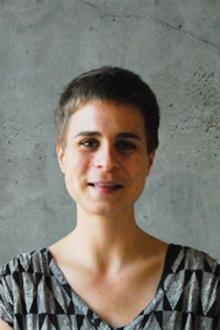
Dipl.-Ing. M.A. Sandra Meireis

Sandra Meireis graduated in 2010 with a diploma in architecture and design from the State Academy of Fine Arts Stuttgart, where she subsequently became a teaching assistant in the department of architectural history, theory and criticism. During this period she was enrolled at the Architectural Association, London studying 2011/12 in the MA programme History and Critical Thinking. Following her main area of interest her master's thesis focused on the political relevance of (derelict) urban spaces in London, Berlin and Warsaw, so-called domains in abeyance. The prospective subject of her PhD continues to conduct this research. Since April 2013 Sandra is a research assistant at the International Urbanism Institute, was part of the IUSD Team and is now involved as external expert within the IUSD at University of Stuttgart.
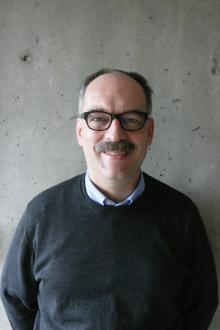
Dipl.-Ing. Matthias Rottner

After completing a Diploma in Architecture and Urban Design (Stuttgart University) at Prof. Kurt Ackermann in 1991, Matthias Rottner worked as a building planner and an architect in different architecture offices in Stuttgart (Heinle, Wischer and Partners, Fahlbusch and Köhler Architects, Rainer Walder Architects). Center of his interest was the planning of hospitals and retirement homes. Since 1996 he collaborated as an assistant lecturer at the Department of Planning and Construction with Prof. José Moro at the Faculty of Civil Engineering of Stuttgart University. In 2006 the complete department changed to the Faculty of Architecture and Urban Planning. He was teaching in the "Sustainable Architecture" Core Module within the IUSD at University of Stuttgart.
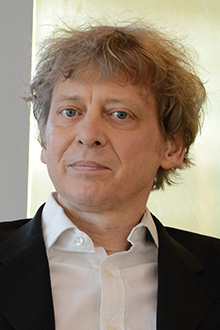
Carsten Vellguth
 Carsten Vellguth studied Architecture at the Technische Universität München and the Architectural Association London with Archigram, Future Systems, Nato. He has been working for various architectural practices in the United Kingdom, Germany, and Singapore. He contributed to many projects ranging from Social Housing, Office Buildings to industrial projects like Coal Fired Power stations and their infrastructure. As practicing Architect and Facility Manager he completed a number of projects in Germany, China, and Russia. He supported the Charity 'Menschen für Menschen' with projects in Ethiopia for many years. Carsten Vellguth has been teaching in Schools of Architecture in the United Kingdom, Germany, Russia and Egypt for more than 20 years. He is interested in all aspects of the built environment, its urban, and historic contexts. His main focus is currently on materials, and methods of constructions, modes of delivery and their social, and environmental consequences. Carsten Vellguth is joining the IUSD team at the Ain Shams University, Cairo as the DAAD Professor of Integrated Urban Planning and Design.
Carsten Vellguth studied Architecture at the Technische Universität München and the Architectural Association London with Archigram, Future Systems, Nato. He has been working for various architectural practices in the United Kingdom, Germany, and Singapore. He contributed to many projects ranging from Social Housing, Office Buildings to industrial projects like Coal Fired Power stations and their infrastructure. As practicing Architect and Facility Manager he completed a number of projects in Germany, China, and Russia. He supported the Charity 'Menschen für Menschen' with projects in Ethiopia for many years. Carsten Vellguth has been teaching in Schools of Architecture in the United Kingdom, Germany, Russia and Egypt for more than 20 years. He is interested in all aspects of the built environment, its urban, and historic contexts. His main focus is currently on materials, and methods of constructions, modes of delivery and their social, and environmental consequences. Carsten Vellguth is joining the IUSD team at the Ain Shams University, Cairo as the DAAD Professor of Integrated Urban Planning and Design.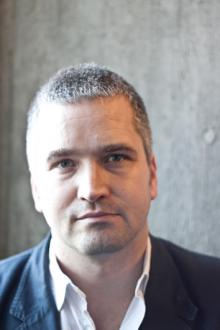
Dipl.-Ing. Prof. Philipp Misselwitz

Architect and urban planner, educated at Cambridge University and the Architectural Association London. Doctoral thesis “CampCities–Community-driven Planning for Urbanised Refugee Camps” (2009). He was professor at the institut for International Urbanism at the University of Stuttgart (2010–2013) and co-initiated the IUSD program.

Dipl.-Ing. Raoul Humpert

Raoul Cyril Humpert studied at the École Nationale Supérieure d´Architecture de Montpellier, France and the University of Stuttgart, Germany where he received his diploma of Architecture and Urbanism in 2012. During his education, he developed a strong interest in the multidisciplinarity of architecture and gained extensive practical and international experiences while working for landscape architects Pfrommer + Roeder, architecture photographer Roland Halbe and Shanghai-based French interior design office LIME388. He also participated in different workshops for mudbrick constructions in Lyon, for walkable cities in Hefei, for public schoolyards in Cairo and for water sensitive urban design in Lima. Additionally Raoul worked as a student assistant at the Institute for Art and Design and the Institute for International Urbanism at the University of Stuttgart. He hold a teaching position at the University of Innsbruck and since November 2012 Raoul is research assistant at the International Urbanism Institute and is part of the IUSD Course Coordination Team at University of Stuttgart. 2014 he participated in the cultural exchange program CCP by the IFA in the „Association pour la Sauvegard de la Médina“ in Tunis as well as he started his PhD research on the „Influence of traditional architecture on inhabitant’s satisfaction“ at the Institute of Housing and Design.
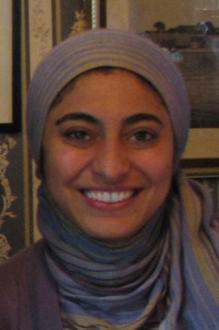
Dr. Marwa Dabaieh

Marwa Dabaieh is an Egyptian architect and BioGeometry practitioner, worked for the last 12 years in the field of sustainable architectural conservation, environmental design and energy efficiency buildings. Marwa received her bachelor degree in architecture from Egypt in 2001. She earned a master degree in environmental design in 2006 and a PhD in conservation of vernacular architecture in 2011 from Lund University in Sweden. Marwa mainly applies transdisciplinary approaches in her research work through participatory action research methods. She received the Swedish Elna Bengtssons foundation prize for scientific research in 2012 for her PhD project in the Western Desert of Egypt. Marwa had several publications and lectures in the fields of energy efficiency buildings, sustainable conservation, environmental design, vernacular architecture and BioGeometry. As a practitioner, she participated in several design projects in Egypt, MENA region and Europe. She joined the teaching staff of IUSD master program at Ain Shams University during fall 2012. Marwa’s research focus was passive low-tech vernacular methods and their adaptation for contemporary energy efficient and zero energy building practice.

Dr. Nina Gribat

After completing a Diploma in Architecture and Urban Design (TU Berlin), the Bauhauskolleg Transitspaces (Bauhaus Dessau) and a MA in Planning Research and Theory (The University of Sheffield) Nina Gribat obtained her PhD on the topic of “Governing the Future of a Shrinking City: Hoyerswerda, East Germany” at the Department of Architecture and Planning at Sheffield Hallam University. Her research interests include governing processes of urban shrinkage and informal urban developments. Nina often works with Foucault's writings on governmentality and their potential contributions to reconceptualising critical planning and urban theory. Since April 2011 Nina was part of the IUSD Course Coordinatino Team and teaching in the "Urban Policy, Planning and Sustainable Urban Management" Core Module. Between 2013 and 2014 she was interim director of the International Urbanism Institute at University of Stuttgart.

Dr. Marwa A. Khalifa

Marwa A. Khalifa has obtained her B.Sc. & M.Sc., “Urban Planning” specialization from Ain Shams University (ASU), while her PhD was a joint supervision between ASU and the University of Sheffield, UK. Dr. Khalifa has major interest in environmental assessment, strategic planning, upgrading of informal settlements and participatory planning approaches. She combines the advantages of having both the theoretical grounds and practical application experience. She has been teaching and supervising multidisciplinary topics, both undergraduate and postgraduate since 1996 and is currently Associate Professor at the Department of Urban Planning and Design. Simultaneously, she provided consultancy services to both national organizations such as General Organization for Physical Planning and Informal Settlement Development Facility as well as International Organizations such as UN-Habitat related to her area of expertise mentioned above. Additionally, since 2007 she has participated and coordinated several international cooperation projects with universities in EU, Latin America, South Asia and MENA Region related to higher education reform in the field of participatory planning and natural resources management. Since the start of IUSD Marwa is intensively involved with the program teaching electives (informal settlement development) and Master Thesis supervison at the Ain Shams University in Cairo.
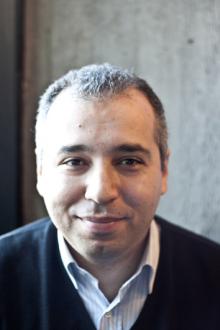
Dr. Mohamed Asar

Mohamed Asar is currently an Assistant Professor at the Department of Architecture, Faculty of Engineering, Ain Shams University, where he received his Bachelors degree in 1997 & PhD in Architecture & Environmental Design in 2008. He obtained his M.Arch in Human settlements from the Catholic University of Leuven, Belgium in 2000. Recently, he works as a Senior Technical Consultant & Advisor for both the General Organization of Physical Planning & the Technical Committee for the Higher Supreme Council of Planning & Urban development in Egypt. His research interests include environmental adaptation of buildings as well as sustainable design with the use of instruments during fieldwork & utilizing simulation programs to improve thermal performance of buildings. The strategies & process of dealing with Informal settlements and the urban poor is of special interest. He was part of the IUSD Course Coordination and is now external experts for Supervision of Master Theses within the IUSD at Ain Shams University.
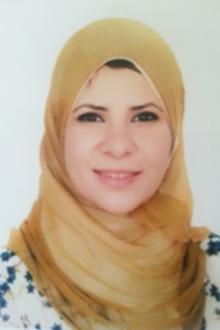
Eng. Mai Moustafa Sabry

Mai Moustafa Sabry received her BSc. in Architecture Department in 2009 from Ain Shams University, Cairo. She is MSc. candidate at Ain Shams University and currently working on her Master thesis. She attended several courses and workshops through the CNRD student exchange program in Cologne, Germany. Mai has worked as an architect at IDG consultancy offices in Cairo in 2009, she worked also as a Teacher Assistant at the department of Architecture “Misr international University” between the time 2010 and 2012. From September 2012 till March 2013 Mai was part of the IUSD Course Coordination Team at Ain Shams University.

Eng. Nashwa Emad
 Nashwa Emad received her B.Sc. in Urban Planning and Design at Ain Shams University in 2012 and holds the position of a teaching assistant at the Department of Urban Planning and Design, Ain Shams University where she is currently enrolled as M.Sc. Candidate at Ain Shams. Nashwa is interested mainly in the role of landscape in the urban development of public open spaces, and its impact on the viability of the city. At the moment, Nashwa is a part time member of the IUSD Course Coordination Team at Ain Shams University.
Nashwa Emad received her B.Sc. in Urban Planning and Design at Ain Shams University in 2012 and holds the position of a teaching assistant at the Department of Urban Planning and Design, Ain Shams University where she is currently enrolled as M.Sc. Candidate at Ain Shams. Nashwa is interested mainly in the role of landscape in the urban development of public open spaces, and its impact on the viability of the city. At the moment, Nashwa is a part time member of the IUSD Course Coordination Team at Ain Shams University.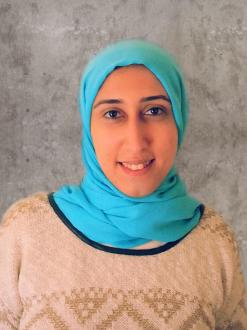
Eng. Nouran Azouz

Nouran Azouz received her BSc. in Urban Planning and Design in 2009 from Ain Shams University, Cairo. Nouran is MSc. Candidate at Ain Shams University; her on-going Master thesis is on the “Good Urban Governance of Informal settlements in Metropolitan Areas”. She attended several courses and workshops through the CNRD student exchange program in the Faculty of Applied Sciences, ITT, Cologne, Germany. Nouran worked for “Takween” for Integrated Communities, where she participated in a UNESCO report on rehabilitation of historic Cairo. She also participated in “Tadamun” project, which is under the partnership of the AU of Washington and Ford Organization, as a researcher on the issues of Urban Governance in Egypt in correspondence to Global Models. She was part of the IUSD Course Coordination Team at Ain Shams University.

Mona Mannoun

Mona Mannoun received her BSc in Architectural Engineering from Misr International University, Egypt in 2008. Her Master thesis at the Department of Urban Planning at Ain Shams University, 2014 is on “Self-developed Areas in Egypt”, focusing on the urban fabric and the architectural elements of different case studies in Egypt and Germany that depend on people who build their own neighborhood. In addition, Mona Mannoun works on a hands-on project related to informal settlements. She worked at ökoplan and IDG consultancy offices in Cairo between 2009 to 2010 and 2010 to 2012. Mona was the assistant programme coordinator for the MSc IUSD at Ain Shams University Cairo.

MSc. Ebtihal Abbas

Ebtihal Abbas is an urban planner and designer holding a MSc. in Integrated Urbanism and Sustainable Design (IUSD) from Stuttgart University in Germany and Ain Shams University (ASU) in Egypt. Ebtihal completed her bachelor of Regional and Urban Planning from Cairo University in 2004. Since then, she has been actively engaged in international multidisciplinary environments in both Egypt and Gulf Cooperation Council (G.C.C) where she was involved in projects varying from a national level to municipal, city centers and neighborhoods’ redevelopment. ‘Urban Development and Revitalization of Downtown-Cairo’ in Egypt, the ‘Pearl-Qatar in Doha’ and ‘Qatar National Master Plan’ in the G.C.C are among the major projects she participated in. Her interests in the role of civil society as well as the influences of political and socio-economical factors on urban development were the basis for her masters’ dissertation. She has also been involved in some freelancing projects, such as taking part in ‘Preparing the Guidance Physical Plans for the Egyptian Villages’- (GOPP), copyediting of the Arabic exhibition contents for ‘Space, Time, Dignity, Rights’- (UNRWA) and assisting in the community participation process for upgrading historical areas in old Cairo in ‘Al Athar Lena’ – (DEDI). She joined the IUSD Course Coordination Team at Ain Shams University in October 2013.
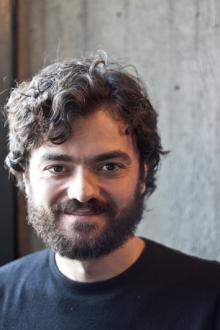
MSc. Yasar Adanali

Yasar A. Adanali has a BA on social and political sciences from Sabanci University (Istanbul) and a master degree on development and planning: social development practice from Development Planning Unit, University College London, with specific focus on poverty reduction and social inclusion policies and practices at the urban level. His ongoing PhD research is on spaces of democracy and planning of informally developed neighborhoods in Istanbul. In addition to Ä°stanbul, he has worked in the cities of South America, Africa and the Middle East on various urban development related researches and hands-on projects. He teaches a masters’ course on participatory planning practice at TU Darmstadt. In 2011 he has been awarded the Urban Planning Journalism Award by the Turkish Chamber of Urban Planners. Yasar is guest lecturer within the IUSD at University of Stuttgart.

MSc. Julia Hartmann

Since obtaining her BSc(Hons) in Architecture at the University of East London in 2002, Julia’s work experience with award-winning practices such as WWMArchitects (London) and ‘die Baupiloten’ (Berlin) has ranged from public space design to the scale of strategic urban framework plans and has included clients such as the London Development Agency (LDA), Hackney Council (London), Nature Park Vitosha (Bulgaria), and Amnesty International. Julia has also been teaching design-build workshop formats at several Universities in Britain and Bulgaria and worked with NGOs Shoreditch Trust (UK), THF (TAR, China) and Ziva Zemia (Bulgaria) on issues of resident-led urban regeneration and local construction skills transfer. In 2013, she completed the MSc IUSD at the University of Stuttgart with a thesis on neighbourhood-based urban upgrading and mobilization processes in Cairo’s informal settlements. Her current research interests evolve around marginalized urban spaces, their inhabitants, and the potential they harbour for the construction, sustenance and defence of the urban commons. A member of several exhibition and publication teams, Julia has recently made editorial contributions to the exhibitions “Beyond Tourism-Zanzibar” (with Weissenhof-Galerie Stuttgart 2013); “Space Time Dignity Rights-Improving Palestinian Refugee Camps” (with UNRWA and GIZ 2012) and to the 2014/2 issue of “Trialog - Journal for Planning and Building in the Third World”.

Prof. Dr. Youhansen Y. Eid

After receiving her B.Sc. in Architectural Engineering, Youhansen Eid received her M. Arch. (1986), and her Ph.D. in Urban Planning from the University of Southern California (1992). Since then, she has worked at the Faculty of Engineering ASU. She held the positions of head of the department of Urban Planning (2007-2009) and Vice-Dean at the Faculty of Engineering (2009-2011). Prof. Eid conducted a private architectural and planning practice and held planning consulting positions in some agencies in Egypt including GAEB and GOPP. Her research interests include the impact of socio-political and technological changes on urban form, strategic planning and sustainability. Currently she is Professor of Urban Planning at Ain Shams University and Visiting Professor at the British University Egypt. She was Head of Admission for the IUSD programme and involved in teaching and supervision of master theses at Ain Shams University.

Prof. Ingo Helmedag

Ingo Helmedag studied architecture at Hanover University and at Graz University of Technology. After graduating from Hanover University he worked as an architect in a number of projects. Starting in 1993, he has taught as an assistant professor for Building Construction and Design at Dresden University of Technology. For the Faculty of Architecture, he established the European Erasmus Program and furthered worldwide University exchange. In 1998, he was a visiting professor at the UBC, Vancouver. His focus and research interest is on building technique and sustainable design. After joining DAAD in 2008, Ingo Helmedag became professor for Building Techniques and Design at the German Jordanian University (GJU) in Amman, where he remained until his transfer to Cairo’s Ain Shams University (IUSD Master Program) in September 2012.
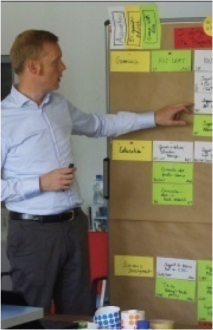
Gerd Lüers

Gerd Lüers is a senior advisor, trainer and coach in the field of organisation development with focal areas in international development cooperation and institutional capacity building. With an educational background of a political scientist he has worked in the field of German and European ODA since 1992, both as an officer responsible of project design and implementation as well as an advisor and evaluator of Technical Assistance projects worldwide. Based on this experience he began to be interested in the design and implementation of successful institutional change processes and found a promising approach in systemic organisation development. After completing a two year education in this field he, since 2010, is increasingly active in advising public and private organisations in achieving effective change which is fully build on the organisation’s own resources and motivation. With his own professional record as a long- and short term expert in many countries of the Near and Middle East and South Asia Gerd Lüers is furthermore working as a trainer and coach in the field of intercultural sensitization and conflict management. Since the start of IUSD Gerd is intensively involved with the program holding workshops on "Team Building", "Conflict Management", and "Project management" at the University of Stuttgart.
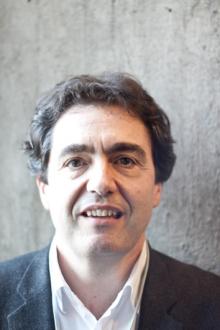
Prof. José Luis Moro
 After completing a Diploma in Architecture and Urban Design at the University of Stuttgart, José Luis Moro worked as a project leader and office manager at different architecture practices in Madrid, Berlin, Munich, Darmstadt and Zürich (Fernando Higueras, Thomas Herzog, Santiago Calatrava). He was mainly involved in the design and implementation of large public buildings and bridges. In 1990 José Moro established his own architecture office in Darmstadt. In 1996 he responded to a call of Stuttgart University to the professorship of Planning and Construction at the Faculty of Civil Engineering. Since 2006 he holds the professorship for Design and Construction at the Faculty of Architecture and Urban Design of the University of Stuttgart. He was the Director of Admission of the MSc IUSD and teaches in various courses within the IUSD at University of Stuttgart.
After completing a Diploma in Architecture and Urban Design at the University of Stuttgart, José Luis Moro worked as a project leader and office manager at different architecture practices in Madrid, Berlin, Munich, Darmstadt and Zürich (Fernando Higueras, Thomas Herzog, Santiago Calatrava). He was mainly involved in the design and implementation of large public buildings and bridges. In 1990 José Moro established his own architecture office in Darmstadt. In 1996 he responded to a call of Stuttgart University to the professorship of Planning and Construction at the Faculty of Civil Engineering. Since 2006 he holds the professorship for Design and Construction at the Faculty of Architecture and Urban Design of the University of Stuttgart. He was the Director of Admission of the MSc IUSD and teaches in various courses within the IUSD at University of Stuttgart.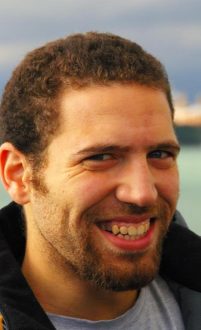
Eng. Mohammed Alfiky
 Mohammed Alfiky (1988); senior researcher, urban planner and GIS expert, graduated from Ain Shams University department of Urban Planning and Design in 2011. Obtained my M.Sc. in 2014 from IUSD entitled “Community Based Security of Tenure: Initial Framework for Squatted Areas in Cairo”. Since 2014, Alfiky is working for the IUSD-Cairo as a senior researcher on the research entitled “Development Priorities in Informal Areas: Planning, Realization and Local Perceptions” DEVEPER besides being a teaching assistant for the Integrated Case Study module in the IUSD. Beginning April 2015 till August 2015, he joined the Institute for Landscape Planning and Ecology (ILPÖ) in Stuttgart University for 3 months as a co-lecturer for Geo-design module for the IUSD-4th intake. Since August 2015, he is back again for the IUSD-Cairo. Further, he is a co-expert for GOPP for “urban development of Altawar’ Axis” in Assalam district. Additionally, Alfiky has a number of publications regarding urban informality in Egypt.
Mohammed Alfiky (1988); senior researcher, urban planner and GIS expert, graduated from Ain Shams University department of Urban Planning and Design in 2011. Obtained my M.Sc. in 2014 from IUSD entitled “Community Based Security of Tenure: Initial Framework for Squatted Areas in Cairo”. Since 2014, Alfiky is working for the IUSD-Cairo as a senior researcher on the research entitled “Development Priorities in Informal Areas: Planning, Realization and Local Perceptions” DEVEPER besides being a teaching assistant for the Integrated Case Study module in the IUSD. Beginning April 2015 till August 2015, he joined the Institute for Landscape Planning and Ecology (ILPÖ) in Stuttgart University for 3 months as a co-lecturer for Geo-design module for the IUSD-4th intake. Since August 2015, he is back again for the IUSD-Cairo. Further, he is a co-expert for GOPP for “urban development of Altawar’ Axis” in Assalam district. Additionally, Alfiky has a number of publications regarding urban informality in Egypt.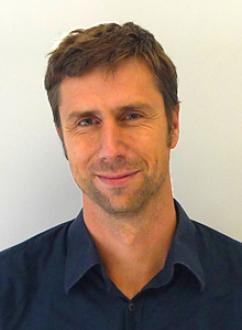
Dipl.-Ing. Daniel Schönle

Daniel Schoenle studied architecture and urban planning at Universitaet Stuttgart, Germany. He graduated in 2002 with a thesis on urban development in Paris (Prof. Wolfgang Schwinge, Institut Grundlagen moderner Architektur und Entwerfen). During his studies, he worked for ecosystems in India, ORplan in Stuttgart and Manderscheid Architekten in Rottenburg, Germany. Two years after graduating he was self-employed and freelanced for Pantle Architekten in Ludwigsburg. From 2004 to 2007, he worked for bueroschneidermeyer in Stuttgart and was mainly responsible for urban and landscape planning projects. Already since 2003, he has successfully taken part in competitions together with various collaborators. He spent the summer of 2007 in Peking and, together with Universal Architecture Studio (today: TAO), worked out development concepts for Chinese cities. Since then, he engages in interdisciplinary cooperation with various national and international offices and partners. Since 2008, he is listed as an Independent Architect and Urban Planner and owns a practice in Stuttgart. In addition to practical planning, Daniel Schoenle engages in research and teaching at various universities. He lectured at Universitaet Stuttgart, at Stuttgart State Academy of Art and Design, and at Biberach University of Applied Sciences (Prof. Ute Meyer). From March 2010 to August 2011, he was assistant professor at the Institute of Urban Planning at Universitaet Stuttgart, subdivision local and regional planning, Prof. Johann Jessen. Daniel is teaching in the IUSD module "Integrated Research and Design" at the University of Stuttgart.
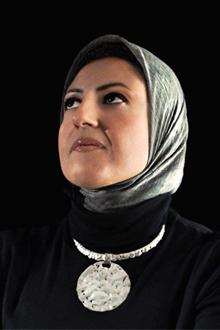
Dr.-Ing Mona Helmy

Mona Helmy is an architect, urbanist, and educator. She received her Doctoral degree in Architecture and City Planning from University of Stuttgart. She holds a Master's degree in Urban Design and a Bachelor of Architecture from Ain Shams University “ASU”, Cairo, Egypt. She is an Assistant professor of Architecture and Urbanism at Dar Al-Hekma University (DAHU), Jeddah, KSA. She was the Founding Chair of the Architecture Department at DAHU. She has taught numerous courses, conducted several design studios and collaborative workshops on a wide variety of topics. Her taught courses range from sustainable urbanism, city branding, affordable housing and green architecture in the built environment. Since 2010, she has been a research fellow at the Städtebau-Institut “SI” of the University of Stuttgart. Her current research studies focus on “Creative Public Space” and “City Imaging and Branding”. Since 2014, Mona is teaching an elective Module “City Branding” at the IUSD, University of Stuttgart. As a consultant and advisor in urban design, city branding, and Contemporary Arab Gulf urbanism, she has contributed to a number of significant planning projects and specialized planning and design studies. She is a member of a number of scientific committees in international conferences, symposia, and refereed.
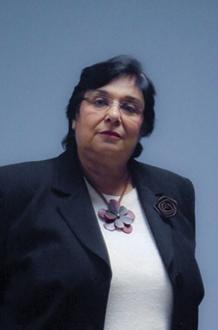
Prof. Dr. Shafak El Wakil

Shafak El Wakil received her B.Sc. and MSc in 1971 and 1975 respectively from Ain Shams University. She obtained her PhD from Stuttgart University in 1980. Prof. El Wakil has been academically active since 1971, ending with being the head of the urban planning department (2001-2007). She currently holds the position of Emeritus professor in the department. Professor El wakil has many fields of interest including, strategic urban and regional planning, climatology and environment as well as architecture. Her interests are reflected in her professional career through the national projects she conducted and headed in her office such as the new city of Assiut and the New city of Toshka. She is also an active consultant to the Ministry of Housing and was the former adviser of the Minister of Environment in the early 2000s, where she represented the Ministry in several International events in North Africa and Europe. She has been awarded the Ain Shams University award for arts and literature for the year 2012. She has supervised and guided many MSc and PhD dissertations. In 2012/2013 and she held the course of upgrading informal settlements within the IUSD Master Program in Cairo.
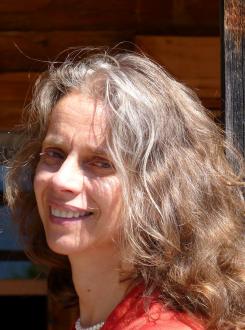
Dipl.-Ing. Dominique Gauzin-Müller

Dominique Gauzin-Müller is a French architect, author and journalist living in Stuttgart since 1986 together with her German husband and their two children. She collaborates as author and translator with a few editors and works regularly with many European reviews. She is redactor in chief of EcologiK, a French magazine about sustainable architecture and urbanism. She already wrote seven books, mostly published by Editions du Moniteur, Paris, and translated in several languages: 1990 "La construction en bois", 1999 "Construire avec le bois, 2001 "L'architecture écologique"(in English “Sustainable architecture and urbanism” by Birkhäuser), 2003 "25 maisons en bois" (in English “Wood Houses” by Birkhäuser), 2005 "25 maisons écologiques" (in English “Sustainable living” by Birkhäuser), 2009 “L’architecture écologique du Vorarlberg”. Dominique Gauzin-Müller shares her passion for sustainability in architecture and urbanism through conferences and workshops all over the world. She teaches at the Ecole Nationale Supérieure d'Architecture in Strasbourg and at the University of Stuttgart. Since 2011 Dominique is teaching in the Core Module “Sustainable Architecture” of the IUSD at the University of Stuttgart.
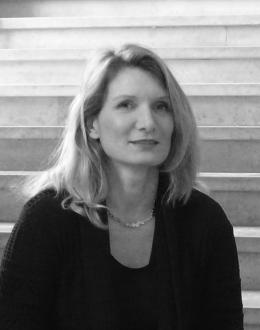
Victoria von Gaudecker

Victoria von Gaudecker has been studying architecture at the Bauhaus University in Weimar, the Politecnico in Milano, Italy and the Virginia Tech University in Alexandria, USA. In 1997 she graduated at the Bauhaus University Weimar, in the very same year Victoria founded her own architectural firm. From 2000 to 2005 she was working as project manager for the atelier of Adolf Krischanitz in Vienna, Austria. During her engagement she was responsible for various projects in urban planning and architecture. Together with Katharina Leuschner Victoria founded the Munich-based architectural office Leuschner von Gaudecker Architekten in 2005. The work of the office is characterized by a very specific approach in search of precise volumes, moods and atmospheres, which led to the nomination for the young talents award of the City of Munich in 2014. Victoria has been teaching at the institute for public building and design of Prof. Arno Lederer at the University of Stuttgart from 2005 to 2014. In the past years, her teaching focus was on design-built projects in South Africa and Peru engaging with vernacular architecture and pursuing a social and ecological approach. Since 2014 Victoria is teaching in the Core Module “Sustainable Architecture” of the IUSD at the University of Stuttgart.
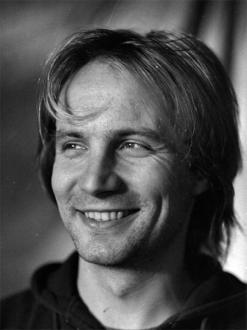
Dr.-Ing. Ferdinand Ludwig

Ferdinand Ludwig is a pioneering architect in the field of “Living Plant Constructions” (Baubotanik). In the recent years he designed and realized highly regarded projects that combine growth processes of living plants with an engineering approach. In his PhD-studies, he develops multiple horticultural construction techniques and analysed botanical rules of growth to deduce construction rules for living plant constructions. In 2007 he was one of the co-founders of the “Research Group Baubotanik” at the Institute of Architectural Theory at the University of Stuttgart (www.baubotanik.org/en). Since that time he organized different workshops and hold many lectures on Living Plant Constructions at the University of Stuttgart and worldwide. Since 2011 Ferdinand is teaching in the Elective “Designing with growth” of the IUSD at the University of Stuttgart.
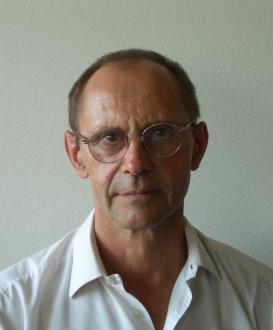
Dr.-Ing. Wolf Reuter

Study of Architecture in Stuttgart and University of California, Berkeley (1971Master) Social Science, Stuttgart, 1969/70; Systems Research, Heidelberg, 1972-81 (Environmental Planning); Doctor 1977; 1982 IGP, Stuttgart University. Habilitation,1988. A.pl.Professor for Design Methods and – Theories, 1995.Interim Director of IGP 1990-92; Interim Professorship for Design Theory at the Faculty for Industrial Design, Essen, 1993; Own Architecture Office 1989-98; Institute for Housing and Design at Stuttgart as Professor for Design Methods, 1998 – present. Guest Professor at University for Industrial Design, Schwäbisch Gmünd, 1999/2000 and at Chung Yuan University in Taiwan, 2003. Since 2006 until now Guest Professor at Tongji University, Shanghai. Research and teaching mainly in the fields of Theories and Methods of Design and Planning, Strategies of Urban Planning, power in architecture and planning, knowledge of architects and planners, the role of politics in planning, theory and methods and tools of argumentation in design and planning. Various publications in the named areas. Since 2012 Prof. Reuter is teaching in the IUSD Core Qualification Module “Master Thesis Exposé” at the University of Stuttgart.
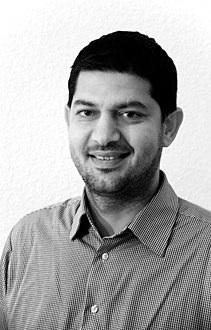
Dr. Hassan ElMouehli

He is an urban planner, designer and architect. After obtaining his B.Sc. 1999, and his M.Sc. degree 2006 in Architecture from Cairo University with a research on culture and architectural programming in the context of urban development. He holds a PhD in Architecture-International urbanism from the Berlin Technical University - Habitat Unit, Germany (DAAD scholarship 2009-2014). His PhD research title is: “Culture and informal urban development: A case study of Cairo’s informal settlements”. With a wide experience in Integrated Urban Development in the global south cities, his research interest focuses on: studying the people-urban space relations, Culture understanding in urban development context, appropriate urban planning instruments and participative processes, analysis of informal processes within Informal settlements and strategies for informal settlements upgrading. He has been invited as a guest lecturer in several master programs (e.g. Urban management, urban design-TU Berlin). In addition, he participated as an expert in several international workshops and seminars in different cities in Germany, Egypt, India, and Tanzania. Currently he works as a research associate at the Habitat Unit, Berlin Technical university, in partnership with IUSD-Cairo, Ain Shams University on the research project: Development Priorities in Informal Areas: ?Planning, Realization and Local Perceptions (DEVEPER). He is currently invited by the IUSD- Cairo to co-lecture at the ICS (integrated case study) module, WS014, working on an informal area in Cairo. He is also involved in advising the students at TU Berlin Urban development master program at Campus EL-Gouna in a semester project that deals with “informal settlement” in Hurghada city.
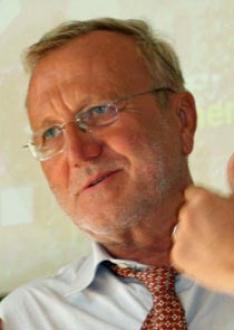
Dipl.-Ing. Wolfgang Mayer

Architect Wolfgang Mayer was educated at Innsbruck University and Stuttgart University (Dipl.Ing. 1974) He worked as a scientific member of the German Institute of Archaeology, Egypt (1975 – 1981), responsible of several excavations and for the reconstruction of the Satet Temples at Aswan, Elephantine. At that time he was a member of the UNESCO team for the restoration of medieval Cairo. 1981 - 1991 he worked as field Conservator at the Department of Conservation, Baden-Württemberg, responsible of the history of construction and art. He continued as senior Conservator and head of the department for the protection of historic monuments and historic town planning at the City of Stuttgart. All that time he was lecturing at Stuttgart University Conservation and Preservation of Monuments and Architectural Design in Historical Areas. In 1998 - 2005 he was lecturing at Cairo University as Visiting Professor and worked as a consultant, Project coordinator and researcher for the German Archaeological Institute, the GIZ and the Aga Khan Foundation, Al Azhar project. In 2005 he took over the Cairo office of Hanns-Seidel-Foundation, Egypt, working on the field of participatory urban planning, environment, gender and human rights. Many programs were in cooperation with Goethe Institute, DAAD, Cairo University and GIZ. Since 2012 he is working as lecturer in the international Master Program “Integrated Urbanism and Sustainable Design IUSD” at Stuttgart University and as a freelancing consultant.
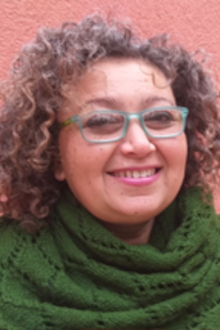
May Al-Ibrashy

May Al-Ibrashy is a licensed architectural engineer with close to 30 years of field experience in conservation and heritage management in Historic Cairo. She holds a BSc in Architectural Engineering from Ain Shams University, an MA in Art, Architecture and Archaeology and a PhD in Archaeology from the School of Oriental and African Studies, the University of London. She is currently founder and chair of Megawra-Built Environment Collective, a twin institution consisting of Egyptian NGO and consultancy working on issues of the built environment. She coordinates Athar Lina, an initiative run by Megawra-BEC in partnership with the Egyptian Ministry of Tourism and Antiquities. Athar Lina conceives of the heritage as a driver for community development and as such works on heritage conservation and rehabilitation, heritage industries and education and urban revitalization in al-Khalifa. Al-Ibrashy is also adjunct lecturer of architecture at the American University in Cairo and at Cairo University.
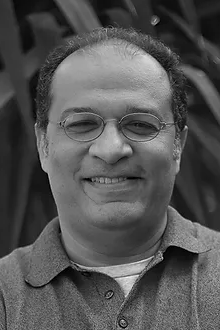
Kareem Ibrahim

Kareem Ibrahim is an Egyptian architect and urban researcher who graduated from Cairo University in 1995. In 1997, he worked on UNDP’s Historic Cairo Rehabilitation Project. He then worked for Aga Khan Cultural Services-Egypt as the Built Environment Coordinator (1997-2010) of the Darb al‑Ahmar Project, one of Cairo’s most ambitious urban revitalization programs. Between 2010 and 2017, he worked as Senior Development Manager for Al-Futtaim Group Real Estate - one of Cairo's largest real estate development projects.
He also worked as a senior expert with a range of international development agencies, including UNESCO, UNHCR, UN Women, AFD, EIB, GIZ, World Bank, USAID, and the British Museum to develop and implement various projects in areas of urban conservation and revitalization, participatory urban development, upgrading of informal areas, gender-sensitive urban design, placemaking, and development of urban policies.
In 2018, he received the Egyptian State Award for architecture (design and building for local communities in informal areas.) He was also selected as a member of the Master Jury of the 2019 cycle of the prestigious Aga Khan Award for Architecture.
Additionally, he is one of the four founding partners and CEO of Takween Integrated Community Development, a Company now celebrating over 10 years in business.
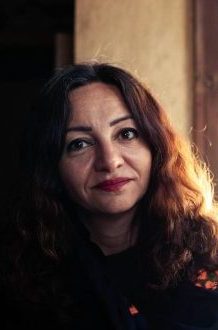
Heba Safey Eldeen

Professor of Architecture and Urban Design, Vice Dean for PostGraduate Studies and Scientific Research, Faculty of Engineering Science, Misr International University (MIU) and adjunct Faculty; Departments of Arts, Graphic Design and Architectural Engineering and School of Science and Engineering, American University in Cairo (AUC). Part-timer, Post Graduate Studies, Department of Architecture, Arab Academy for Science Technology and Maritime Transport (AASTMT). Member, International Ranking Committee, Scientific Research Academy, Ministry of Higher Education and Scientific Research. Member; Global Centre of Spatial Methods for Urban Sustainability (GCSMUS) and SEED Project Towards Equitable Learning Curricula in Schools of Urban Planning and Design, DAAD (German Academic Exchange Service). Co-director; Architecture and Children Work Programme, International Union of Architects (UIA). Director; House of Egyptian Architecture, Cultural Development Fund, ministry of Culture. Supervised and examined over 50 Masters and Ph.D. theses locally and internationally. Published more than 40 refereed international scientific researches. Contributed in, collectively and individually 10 published international books and book chapters, in addition to numerous articles in renowned local and international magazines. Member; Architecture Committee- Supreme Council for Culture, Ministry of Culture, Egyptian Society for Culture Development, Society of Egyptian Architects and International Association for Aesthetics (IAA). Founder; Built Environment Education Lab (BEE.Egypt) “Architecture and Children-Egypt”; Introduces architecture, heritage, and sustainability to children and teens through participatory design workshops, walkthroughs, trips and bootcamps in Egypt and worldwide. Joined and presented in more than 30 exhibitions, symposia and colloquia around the world. Former expert, Real City Lab Project, Faculty of Fine Arts - Technical University of Berlin (TUB). Former member, Technical Committee for Developing Educational Curricula and Programs, Supreme Council for Universities. Former editor, author, and translator of local and international architectural magazines. Jury in local and international architectural awards and competitions.
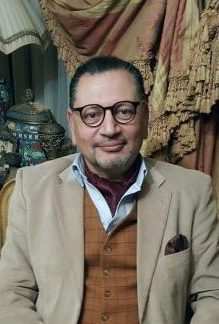
Prof. Mohammad H. Refaat

Mohammad H. Refaat graduated from the faculty of Urban & Regional planning Cairo University (Hons 1989). He was appointed as a teaching assistant and later was awarded a Chevenning scholarship to obtain his PhD in Landscape Architecture from Edinburgh University, UK (1995) with a thesis on " The Egyptian Landscape and Tourism a Study of the Egyptian Red Sea Coast Landscape Planning Process".
From 1995 till 2014 he acted as an assistant and associate professor at Cairo University teaching and conducting the Landscape Planning, Landscape Architecture, Urban Landscape and Sustainable Landscape ecology courses on both levels under and post graduate. At present, he holds the chair of a Professor of Landscape Architecture at the Faculty of Urban & Regional Planning, Cairo University, as well as Head of Urban Landscape Design Department, as well as the Director of The Center of URBAF (Center for African Urban Development . His research interests include landscape planning, landscape design, sustainable tourism, urban parks and eco-parks, waterfronts cultural landscapes. He has published several papers in the International Journal of Development and Sustainability, the International Journal of education & Research, Journal of Urban Research. In addition to academia, he is the founder of the Landscape architecture and planning firm NATURE since 2005. He designed and supervised several landscape planning & design projects in Egypt and the Middle East,(in cooperation with several international firms such as HOK, WAG, 360 and Edge), some of these projects are the city of Khartoum Sudan, Water front landscape, the Olympic City in Basra, Iraq, the water front development of Aseer, KSA, Abha, Tabouk, Najran, KSA Airports, Salalah at Oman, halab, Syria. Domestically, he designed several tourist resorts along the Red Sea coast as well as some public parks, clubs, residential compounds, streetscapes in Cairo. Also, he has worked as a consultant for the World Bank (Cairo, Egypt) in the Red Sea Sustainable Tourism Projects, and the Tourism development Authority (TDA), the Global Environmental Fund (GEF), and The Ministry of Environmental Affairs (EEAA).He is also, an athlete a retired national handball player, and currently a Board member at the Federation and participated as an LOC of the World Cup Egypt 2021.
